From: Bais HaVaad Halacha Center <info@baishavaad.org>
Date: Wed, Apr 30, 2025, 8:03 PM
Subject: Business Halacha Daily
To: <agentemes4@gmail.com>
| |||||||||||||||||||||||||||||||||||||||||||
|
| |||||||||||||||||||||||||||||||||||||||||||
|
----- Forwarded Message -----From: "NILI- Chicago Institute of Women's Learning" <info@nilitorah.org>To: "Chana Chroman" <mates57564@aol.com>Cc:Sent: Wed, Apr 30, 2025 at 8:04 PMSubject: This Week's Shabbat Afternoon Shiurim
Please join us for uplifting Shabbat Shiurim for women!
Our Contact Information
YU Torah Mitzion Kollel
8233 Central Park Ave
Skokie, IL 600767739736557
|
----- Forwarded Message -----From: "HTC" <htcnews-htc.edu@shared1.ccsend.com>To: "mates57564@aol.com" <mates57564@aol.com>Cc:Sent: Wed, Apr 30, 2025 at 4:17 PMSubject: HTC Newsletter: April RecapEmail from Hebrew Theological College Pictures, events, news, and more!

April 30, 2025
Dear Alumni and Friends,
We hope you had a wonderful and meaningful Pesach! Even with the break, it's been an exciting and energizing month here at HTC.
This past weekend, we were thrilled to welcome over 500 guests to our GGM 3-on-3 HTC Alumni Tournament and Leading Edge Administrators Family Fun Day! The event was filled with incredible energy, delicious food, and amazing achdus. We're so grateful to our generous sponsors for making it all possible—and a big mazel tov to Shimon Greenland, Ami Strick, and Tzvi Wechsler on taking home the championship!
We're also proud to share that our HTC102 Causematch campaign (April 28–29) was a tremendous success! Thanks to the efforts of our dedicated alumni, students, and community members who served as ambassadors, we reached our goal and celebrated the strength of our HTC family. If you missed the campaign, there's still time to support—our page is still live and accepting donations at htc.edu/give.
As always, there's so much happening across every division of HTC. Keep scrolling for more exciting news and updates.
Wishing you a wonderful month ahead,
Rabbi Shmuel L. Schuman
CEO, HTC
HTC News

This monthly email newsletter is sponsored by:

GGM Associates, Inc. was established with a strong foundation and understanding of the healthcare industry's accounting and business operations. With decades of public and private accounting experience, GGM can help you grow your business and achieve your goals.
Visit ggmcpas.com to learn more!

This Month
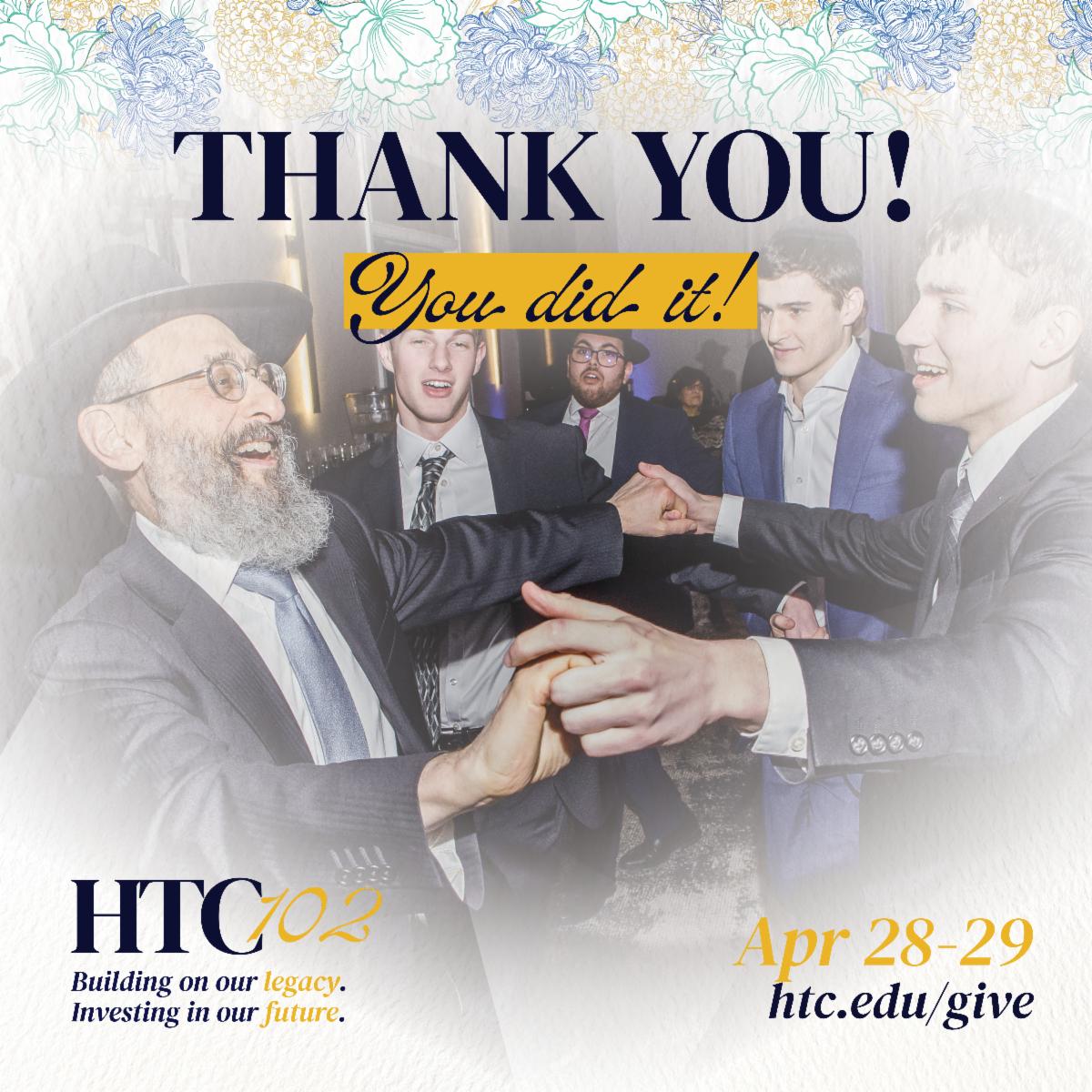
We have now entered the post-campaign Bonus Round! The page is still open and accepting donations to support HTC.
Donate to HTC102


Check out HTC's alumni website for more exciting news, pictures, events, and more!


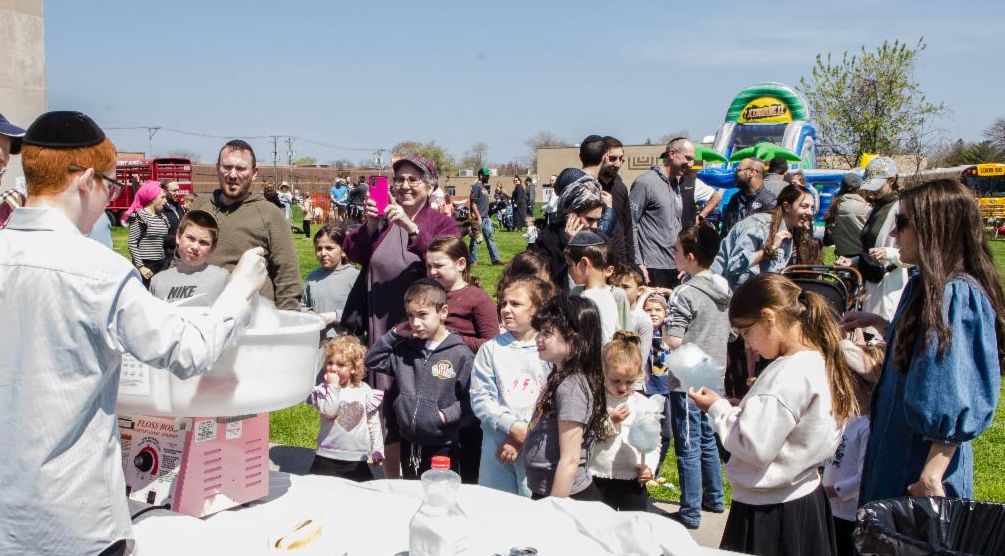
HTC Hosts Successful GGM Alumni Tournament and Leading Edge Administrators Family Fun Day for the Community
On Sunday, April 27, HTC welcomed over 500 guests from the community to campus for a day full of family fun and competition at HTC. The event brought together alumni, families, students, and friends for an unforgettable day.
Mazel tov to the winning 3-on-3 team, Shimon Greenland, Ami Strick, and Tzvi Wechsler , and thank you to our sponsors for making it all possible!

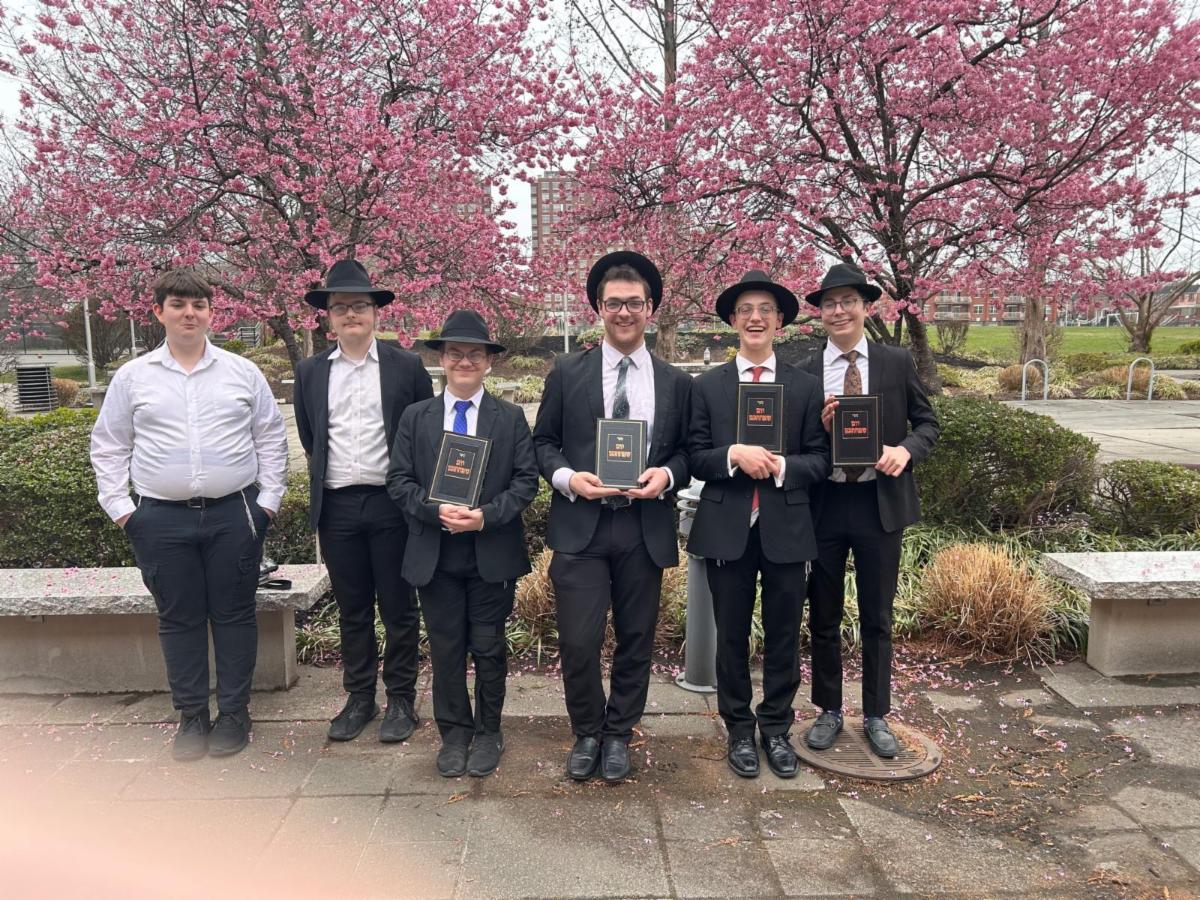
FYHS Talmidim Compete in Model Bais Din
Last month, a group of our talmidim had the opportunity to participate in the Touro Lander College Model Beis Din competition. Model Beis Din is an incredible program, where schools from across the country spend months learning a complex halachic question - this year, the question of conjoined twins. Each week, these students would...


FYHS Competes in Annual Red Sarachek Competition in NY
In March the FYHS varsity basketball team made its third appearance in Yeshiva University's annual Red Sarachek Basketball Tournament, which brings together 20 Jewish high school basketball teams from around the country...

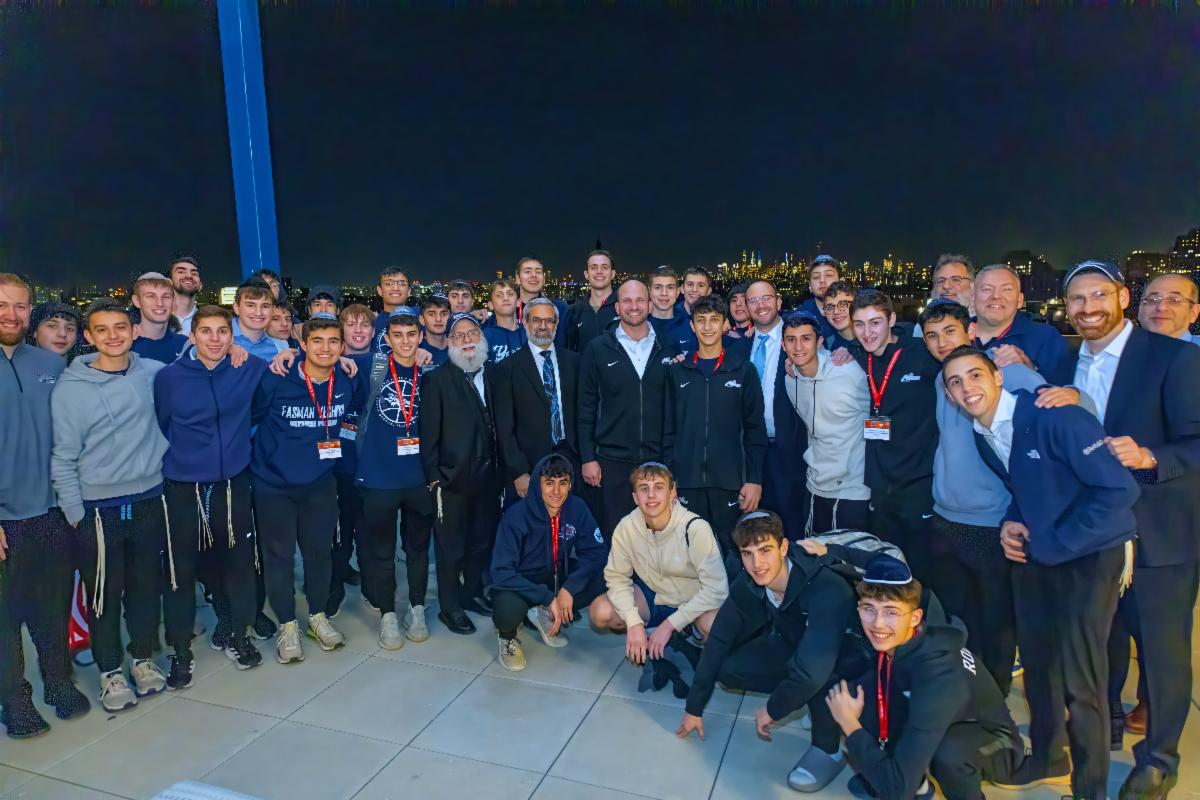
Alumni and Friends Join Together after Sarachek for a Special Leil Shishi Tisch
On March 27th, over 100 alumni and friends joined us for a special Leil Shishi Tisch following the FYHS game at Sarachek. The event, held at the Radio Hotel Rooftop, down the block from YU's Max Stern Athletic Center, featured the beautiful melodies of Eli Levin, Yeshiva Rebbeim, and of course, Romanian salami! We we're proud to be joined by the ICJA Aces who competed at Sarachek. It was an amazing night of ruach, achdus, and good-hearted fun!

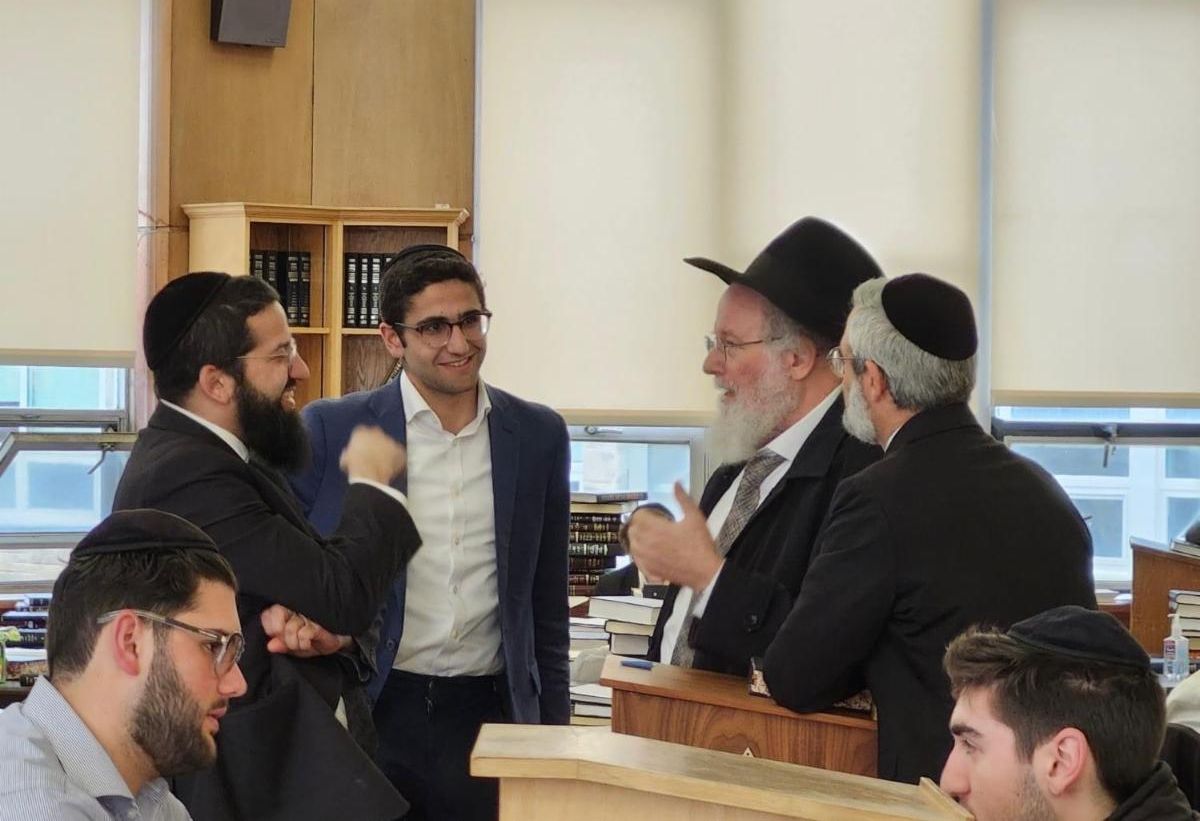
Welcome Rabbi Yehuda Abramowitz
It was a tremendous zechus for HTC to welcome Rabbi Yehuda Abramowitz, Maggid Shiur in Yeshivas Toras Moshe and Yeshiva alumnus (1968) and participant of the famed HTC Emes Program ('68-'69) with the Novominsker Rebbe, Rav Yaakov Perlow Z"TL and learned in HTC's Beis Midrash until 1971.

More HTC News

New Episodes of The Yeshiva Show

Season 2, Episode 8 - Mr. Yeshiva Goes to Sarachek is now live!
Rabbi Ephraim Goldman, and yeshiva students Adir Amster ('25), Elan Brand ('25) and Akiva Isenberg ('26) sit down with Duv and Mo to talk about the Yeshiva's recent trip to the Big Apple for the annual YU Sarachek Tournament, plus Duv and Mo preview the HTC 102 giving campaign kicking off next week!
Listen on Spotify
Listen on Apple Podcasts
Listen on HTCAlumni.org

Our Students: Past and Present
HTC is proud of our students, past and present! Take a look at this month's spotlighted student and alumnus.

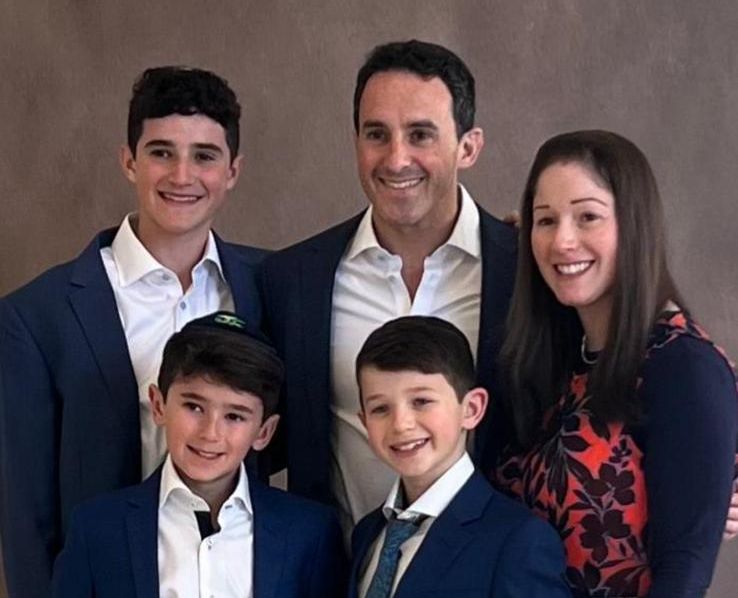
Alumnus Name: Shneur Nathan
Class: FYHS Class of 2002
Where do you live: Plainview, NY
Tell us about your family: I'm married to Stephanie and have three boys - Naftali (16), Shmuel (12), and Yoni (10).
What is your profession: I'm a trial lawyer and co-managing partner at Nathan & Kamionski LLP. We litigate cases around the country from offices in Chicago, Baltimore, Detroit, and Long Island. Some people may be surprised to learn that I train Brazilian Jiu Jitsu but it's similar to the Chess match that happens in court. I'm also the proud Vice President of my shul, Young Israel of Plainview.
What is your favorite memory from FYHS/HTC/Kayitz:
Rabbi Twerski was Skokie Yeshiva for me. He was exactly what I needed for that time in my life. He is pure, honest, and famously brilliant. He represented authentic Judaism to me as a teen, young adult, and today. On our first day he said to the class, "I'll be your Rebbe if you'll be a Talmid." That challenge changed my life. I'm forever grateful for my time learning from him.
A lesson/takeaway from your time at FYHS/HTC/Kayitz:
I loved how they allowed you to be yourself and not push you to be something else. As I Look back at the Rabbis at the Yeshiva I realize just how genuine the hanhala was and how lucky I was to benefit from their sincerity and devotion. I have a lot of hakarat hatov to the Yeshiva for everything they did for me.
What advice do you have for current students:
Embrace your relationships with peers and rabbeim today and at all times; they carry you through the rest of your life.


Student Name: Levi Altschul
Grade: 10th Grade, Class of 2027
Shiur: Rabbi Babad's Shiur
Favorite Class: Mr. Genic's Math Class
What Career are you Interested in Pursuing: I don't know for sure yet but I'm thinking maybe Engineering
Best memory at FYHS so far: For me, it's a very recent memory. Going to Sarachek and having an amazing time. Definitely in the top 1% of my FYHS memories so far.
Best part of the Yeshiva: The best part is the vibe. The ruach and achdus is incredible!
More Alumni Spotlights

Divrei Torah from Alumni and Rebbeim

Leshon Hara - No Tolerance
By Rabbi Ephraim Miretzky
"If a person will have on the skin of his flesh a s'eis or a sapachas or a baheres, and it will become a tzara'as affliction on the skin of his flesh, he shall be brought to Aharon the Kohen, or to one of his sons, the Kohanim." Vayikra 13:2
Read More 
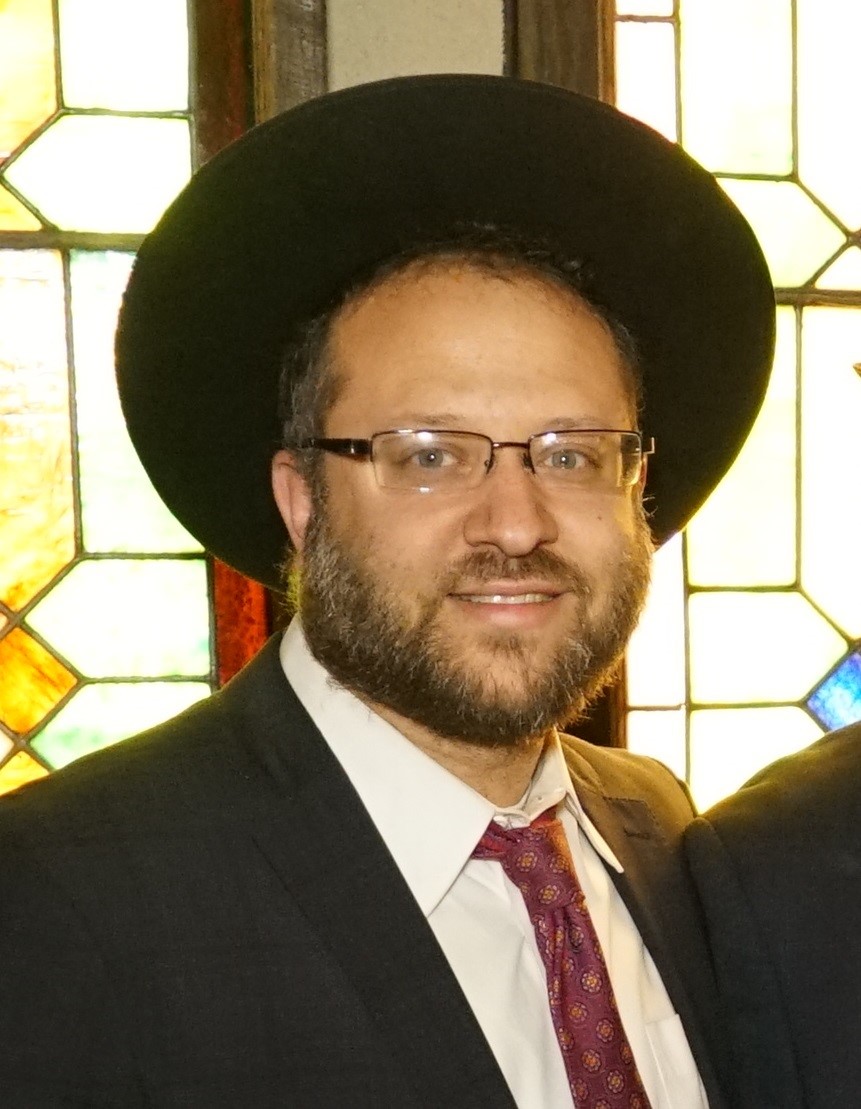
The Hyssop and the Cedar
By Rabbi Mordechai Millunchick
"The Kohen shall command to take, for the person being purified, two live pure birds, cedar wood, a crimson thread, and hyssop." Vayikra 14:4
Read More
More Divrei Torah

Our Alumni Serving in Israel
Please have our alumni in your tefillos. Some of our past talmidim are currently in Gaza and up north fighting on behalf of Am Yisrael.
Download Updated Yeshiva IDF Tehillim List

Check Out Our Updated Brochures!
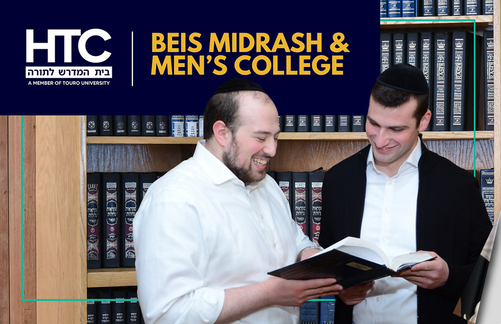
HTC Beis Midrash and Men's College Brochure

HTC Flex College Brochure
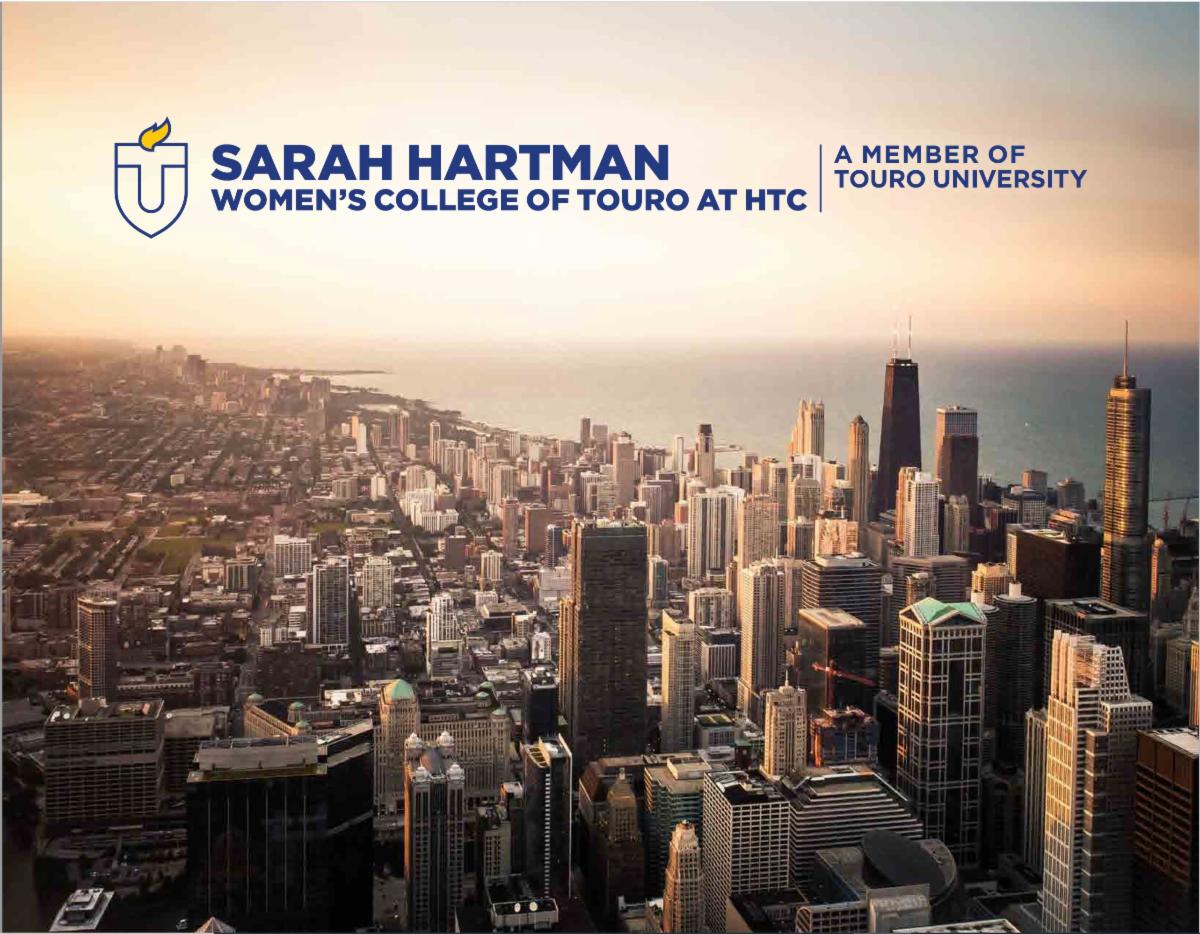
Sarah Hartman Women's College of Touro Brochure

Fasman Yeshiva High School Brochure
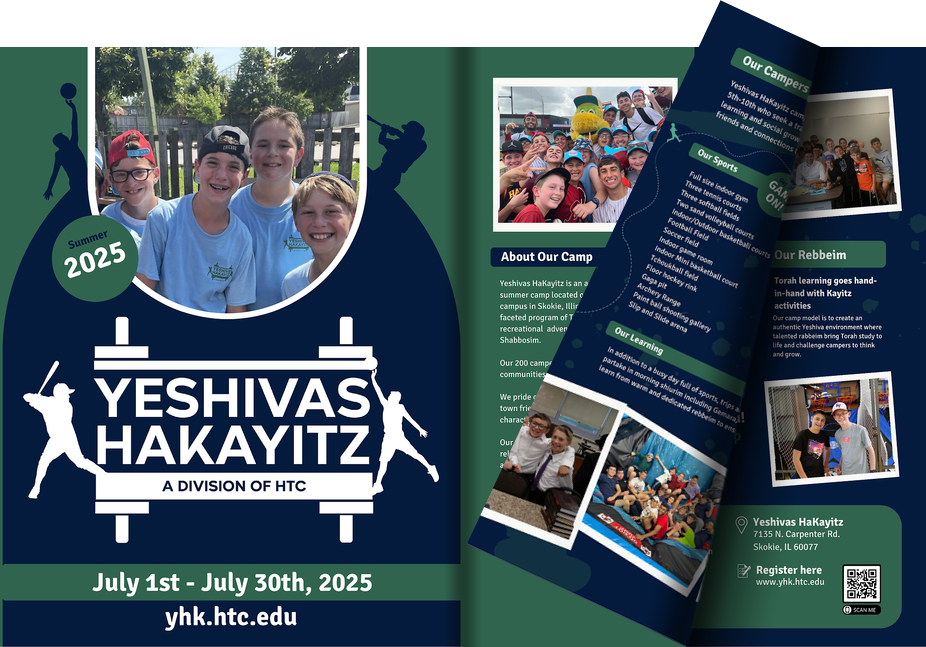
Yeshivas HaKayitz 2025 Brochure


Support HTC



If you wish to update your contact information, please send a quick email here.
Hebrew Theological College | 7135 N. Carpenter Road | Skokie, IL 60077 US